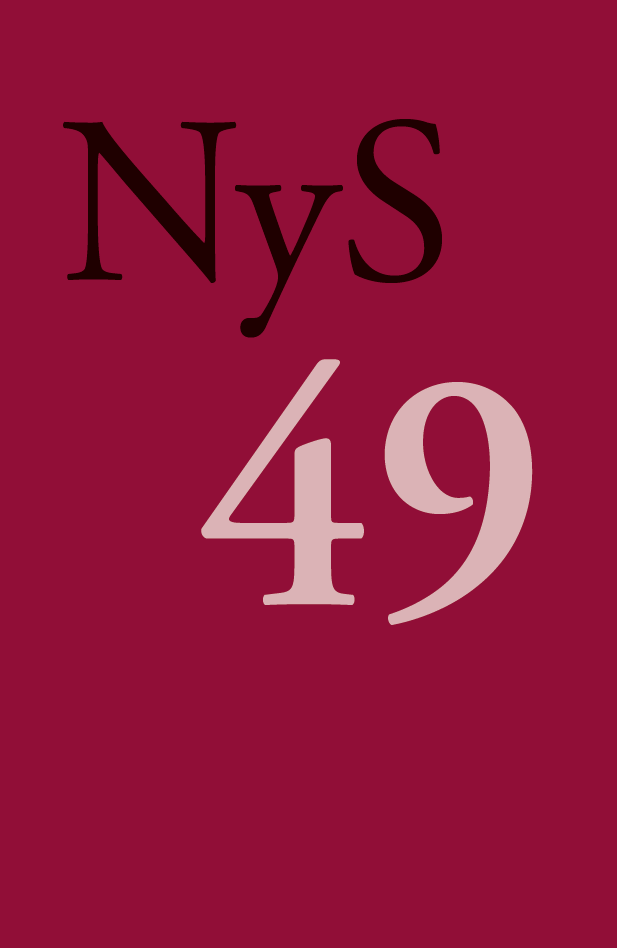Word duration and grammatical and pragmatic function – the case of egentlig
DOI:
https://doi.org/10.7146/nys.v1i49.22910Resumé
The article investigates variation in the duration of the pronunciation of the Danish adverb egentlig in a large corpus of spoken modern Danish. The article shows that there is considerable variation in the duration of egentlig, and that this variation only to some extent can be explained by speech rate (or ‘articulation rate’). It is shown that the individual speaker has a significant impact on the variation. By the useof a mixed-model multiple linear regression analysis that incorporates the effect on duration that the individual speaker has, the investigation reveals that linguistic factors such as topology and utterance-final position together with factors relating to linguistic processing such as articulation rate and the position near a hesitation marker as well as nonlinguistic factors such as age and gender all contribute signifi cantly to the variation in the duration of egentlig. The results are discussed in relation to similar findings in the literature and the article proposes potential future topics of investigation in relation to phonetic reduction in spoken Danish in the basis of the results.Downloads
Publiceret
Citation/Eksport
Nummer
Sektion
Licens
Forfatteren/forfatterne og NyS har ophavsret til de artikler og anmeldelser der bringes i tidsskriftet. NyS har ophavsretten til den udgivne version af tidsskriftet. Forfatteren har ophavsretten til sin egen tekst. Forfattere kan arkivere den publicerede artikel på deres institutions forskningsarkiv (Institutional Repository) eller en privat hjemmeside, når forfatteren samtidig linker til artiklen med den officielle DOI.
For artikler publiceret i NyS tillades at læsere kan downloade, kopiere, udskrive, søge eller linke til og citere fra artikler til ethvert lovligt formål. Artikler kan frit deles og linkes til på forsknings- og undervisningsnetværk (så som Blackboard, Moodle, Canvas o.a.). Link foretrækkes fordi det giver oplysning om brug af tidsskriftets artikler, og fordi det anerkender tidsskriftets redaktionelle arbejde. NyS tillader ikke at læsere bruger artikler eller dele af dem i egne artikler uden at citere, eller at læsere på anden vis anvender dem til kommercielle formål.





